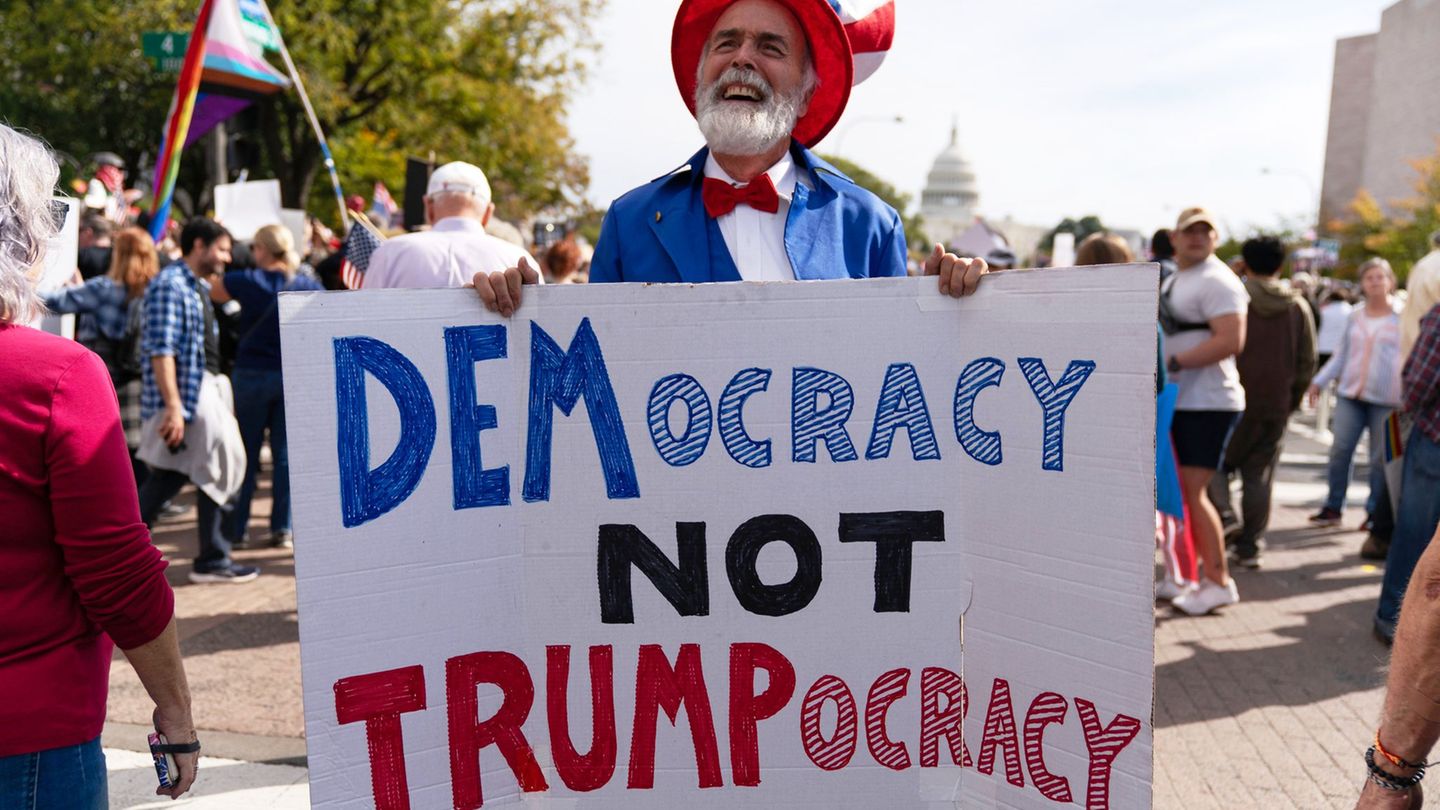The Hindu place of worship stands where there was a mosque for centuries. It is emblematic of a trend in India, where religious minorities increasingly feel like second-class citizens.
India’s Prime Minister Narendra Modi inaugurated an important and controversial temple together with Hindu priests. The church in the northern Indian pilgrimage town of Ayodhya in the state of Uttar Pradesh stands on a site where a 16th-century mosque was destroyed by radical Hindus in 1992. The Hindu nationalist Modi celebrated the opening on Monday with several thousand invited guests, and millions of people watched the live broadcast of the celebrations.
Analysts also see the inauguration of the shrine as an unofficial campaign start for the Prime Minister, who has been in office for ten years and is hoping for a third term in office in the parliamentary elections in a few months. With the building – an old election promise – Modi wants to inspire the Hindu majority, which makes up 80 percent of the population in the multi-religious country.
Critic: Increasing Hinduization of India
Critics also see it as a sign of increasing Hinduization in India, where religious minorities increasingly feel like second-class citizens. Muslims are the largest minority and make up a good 14 percent of the population. Officially, the most populous country with 1.4 billion inhabitants has been a secular democracy since its independence from the British colonial rulers in 1947. But Modi regularly and deliberately mixes politics and religion in order to increase his popularity among Hindus – with success.
According to the belief of many Hindus, the popular deity Ram was born at the site of the temple. The destruction of the mosque led to serious unrest a good three decades ago, with around 2,000 deaths, according to media reports. In 2019, the country’s highest court finally ruled that Hindus had the right to build their temple on the disputed piece of land. Radical Hindu groups have compared its importance to that of Mecca for Muslims or the Vatican for Christians.
“India is now full of positive energy,” Modi said at the inauguration, stressing that this day is no less than the “beginning of a new era.” “We commit ourselves to building a capable, great, divine India from this moment onwards.”
Stars from the film and sports world
Among the invited guests at the celebrations, which lasted several hours, were important business people and stars from the world of film and sports. A number of states declared Monday a public holiday. However, the political opposition largely stayed away from the event because they criticized the mixing of religion and politics. Some Hindu believers also spoke out against the inauguration on Monday because the temple has not yet been fully built.
Criticism also came from Pakistan, which is hostile to India and has a majority Muslim population. “A temple built on the site of a destroyed mosque will remain a blot on the face of India’s democracy,” the Foreign Ministry in Islamabad wrote in a statement. The ceremony is therefore an expression of increasing majority politics. Pakistan accused India of decades-long efforts to marginalize Muslims socially, economically and politically. You also hear such words from Muslims in India. But many believe that they simply have to come to terms with the current situation.
Source: Stern
I have been working in the news industry for over 6 years, first as a reporter and now as an editor. I have covered politics extensively, and my work has appeared in major newspapers and online news outlets around the world. In addition to my writing, I also contribute regularly to 24 Hours World.




